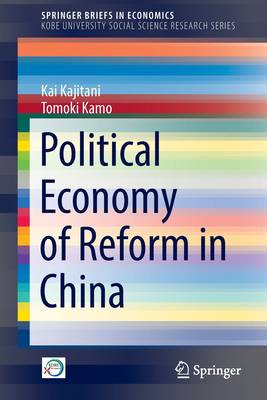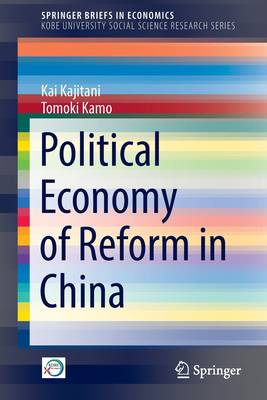
En raison d'une grêve chez bpost, votre commande pourrait être retardée. Vous avez besoin d’un livre rapidement ? Nos magasins vous accueillent à bras ouverts !
- Retrait gratuit dans votre magasin Club
- 7.000.000 titres dans notre catalogue
- Payer en toute sécurité
- Toujours un magasin près de chez vous
En raison de la grêve chez bpost, votre commande pourrait être retardée. Vous avez besoin d’un livre rapidement ? Nos magasins vous accueillent à bras ouverts !
- Retrait gratuit dans votre magasin Club
- 7.000.0000 titres dans notre catalogue
- Payer en toute sécurité
- Toujours un magasin près de chez vous
Description
This book contains four research papers that clarify the issues behind China's rapid economic growth, using empirical studies. The book makes two distinctive points. First, it elucidates the unique economic development of China from a different perspective than the "state capitalism" theory, based on empirical research on the Chinese economy and politics with the cooperation of leading scholars. Second, the book paints a total picture of China through an interdisciplinary analysis of economics, politics, and history.
Each chapter focuses on the political-economic context of China's rapid economic growth on the following basis. First, the authors analyze whether there is a clear difference in the labor distribution rate between state-owned and non-state-owned enterprises, using data from industrial enterprises. Second, they focus on Shenzhen as an innovation hub and examine sustainable innovation and its institutional context in China. Third, there is empirical clarification of questions by matching the databases of industrial enterprises and information on elected representatives of the Local People's Congress of Yangzhou City, Jiangsu Province. Finally, the authors focus on the competition by local governments to attract companies by auctioning land usage rights.Spécifications
Parties prenantes
- Auteur(s) :
- Editeur:
Contenu
- Nombre de pages :
- 90
- Langue:
- Anglais
- Collection :
Caractéristiques
- EAN:
- 9789811902017
- Date de parution :
- 11-03-22
- Format:
- Livre broché
- Format numérique:
- Trade paperback (VS)
- Dimensions :
- 156 mm x 234 mm
- Poids :
- 154 g

Les avis
Nous publions uniquement les avis qui respectent les conditions requises. Consultez nos conditions pour les avis.






